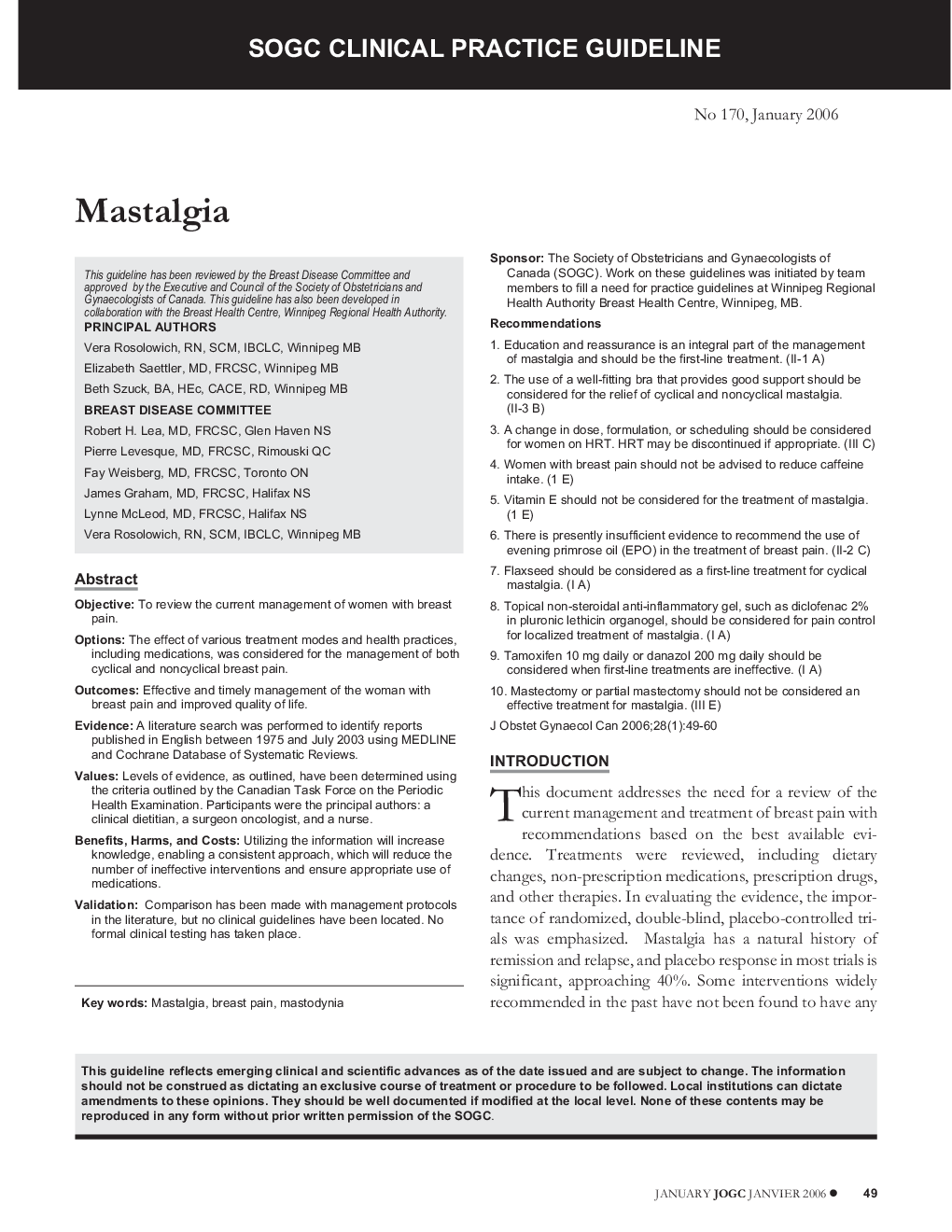| Article ID | Journal | Published Year | Pages | File Type |
|---|---|---|---|---|
| 3964465 | Journal of Obstetrics and Gynaecology Canada | 2006 | 9 Pages |
Abstract
ObjectiveTo review the current management of women with breast pain.OptionsThe effect of various treatment modes and health practices, including medications, was considered for the management of both cyclical and noncyclical breast pain.OutcomesEffective and timely management of the woman with breast pain and improved quality of life.EvidenceA literature search was performed to identify reports published in English between 1975 and July 2003 using MEDLINE and Cochrane Database of Systematic Reviews.ValuesLevels of evidence, as outlined, have been determined using the criteria outlined by the Canadian Task Force on the Periodic Health Examination. Participants were the principal authors: a clinical dietitian, a surgeon oncologist, and a nurse.Benefits, Harms, and CostsUtilizing the information will increase knowledge, enabling a consistent approach, which will reduce the number of ineffective interventions and ensure appropriate use of medications.ValidationComparison has been made with management protocols in the literature, but no clinical guidelines have been located. No formal clinical testing has taken place.SponsorThe Society of Obstetricians and Gynaecologists of Canada (SOGC). Work on these guidelines was initiated by team members to fill a need for practice guidelines at Winnipeg Regional Health Authority Breast Health Centre, Winnipeg, MB.Recommendations1.Education and reassurance is an integral part of the management of mastalgia and should be the first-line treatment. (II-1 A)2.The use of a well-fitting bra that provides good support should be considered for the relief of cyclical and noncyclical mastalgia. (II-3 B)3.A change in dose, formulation, or scheduling should be considered for women on HRT. HRT may be discontinued if appropriate. (III C)4.Women with breast pain should not be advised to reduce caffeine intake. (1 E)5.Vitamin E should not be considered for the treatment of mastalgia. (1 E)6.There is presently insufficient evidence to recommend the use of evening primrose oil (EPO) in the treatment of breast pain. (II-2 C)7.Flaxseed should be considered as a first-line treatment for cyclical mastalgia. (I A)8.Topical non-steroidal anti-inflammatory gel, such as diclofenac 2% in pluronic lethicin organogel, should be considered for pain control for localized treatment of mastalgia. (I A)9.Tamoxifen 10 mg daily or danazol 200 mg daily should be considered when first-line treatments are ineffective. (I A)10.Mastectomy or partial mastectomy should not be considered an effective treatment for mastalgia. (III E)
Keywords
Related Topics
Health Sciences
Medicine and Dentistry
Obstetrics, Gynecology and Women's Health
Authors
Vera RN SCM, Elizabeth MD, FRCSC, Beth BA, HEc, CACE, RD,
